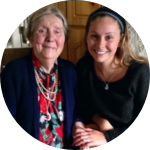Please wait...
About This Project
Muslim healthcare providers constitute a growing, diverse and underrepresented population in the U.S. Culturally inclusive dress policies in the workplace are not standard. This study explores how healthcare leaders and partners perceive Muslim healthcare providers, including those who wear hijab. The data will provide information that can help initiate changes in organizations to provide an environment that enables Muslim healthcare providers to feel comfortable providing optimum healthcare.
More Lab Notes From This Project

Browse Other Projects on Experiment
Related Projects
Understanding the perspective of women who use the Billings Ovulation Method
Fertility awareness-based methods (FABM) are a group of family planning methods that teach women how to...
How do patients and other healthcare stakeholders engage with social media and mobile applications?
We hypothesize that the subject matter and emotional context of tweets about medical topics have evolved...
How do you know a surgeon in training is ready to operate independently?
I am trying to find a cheap, easy and reliable way to grade the skill of surgeons in training. Experts can...


